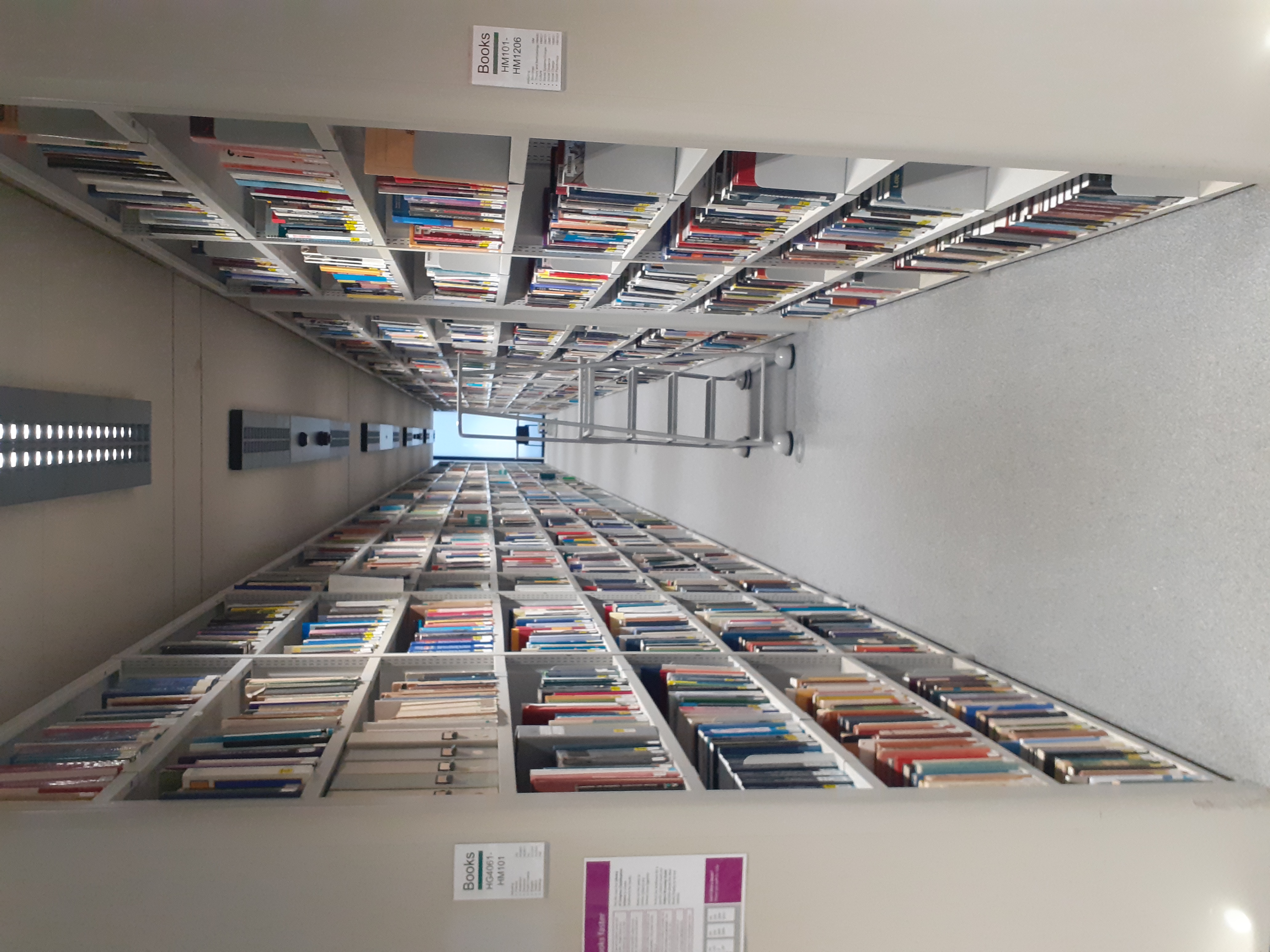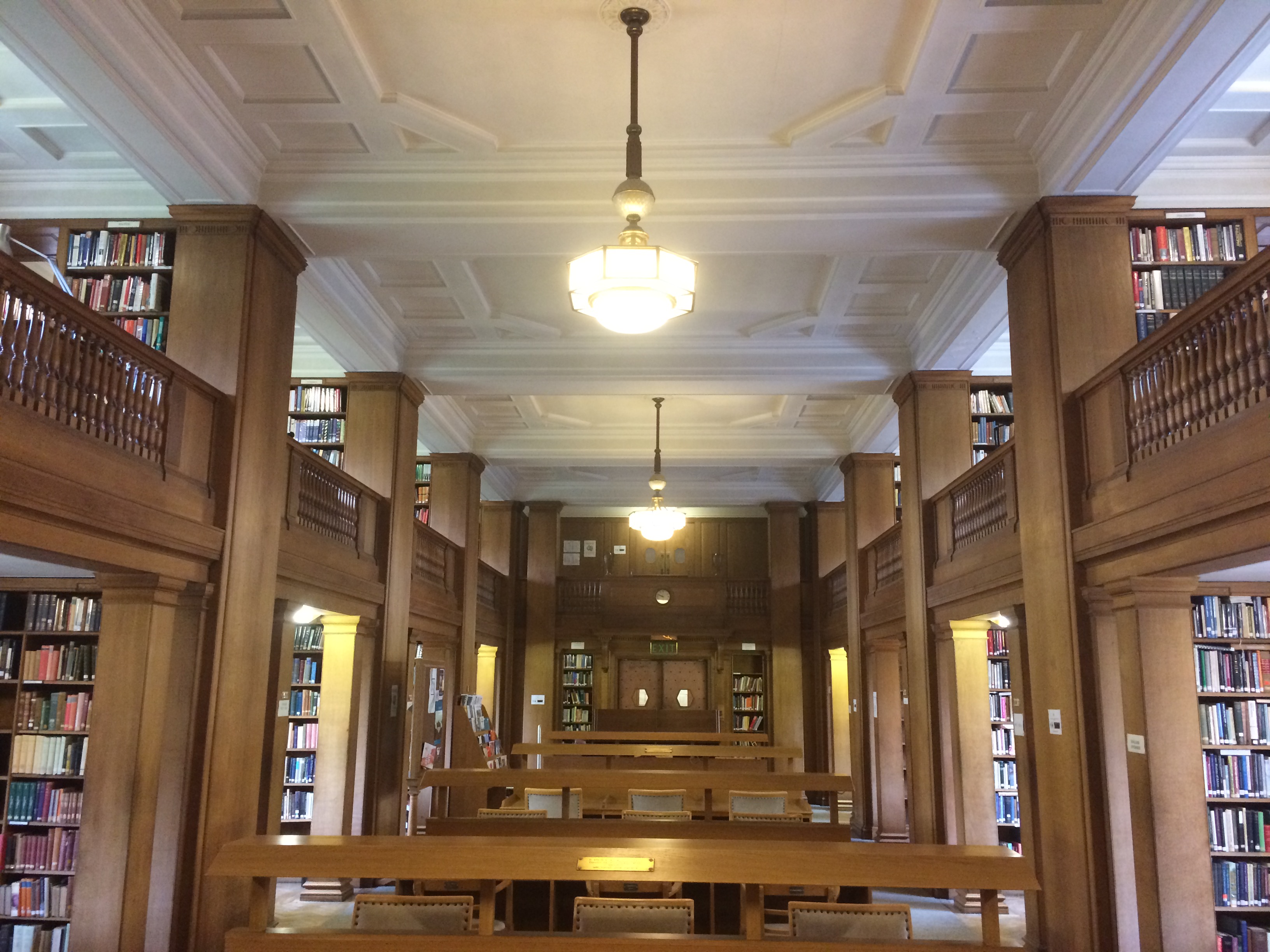Continuing with our series, this week we hear from Grace Brown (St Hilda’s College Library, 2013/14), Lauren Ward (Social Science Library, 2018/19), and Kate Courage (Bodleian Libraries, 2003/04).

What did you most enjoy about this experience?
Grace:
In a college library, you’re working in a very small team, so I was able to get involved in lots of aspects of library work, from book ordering to attending college meetings, with plenty of customer service and processing books in between. I had the freedom to explore a few things I was interested in, such as creating floorplans and putting together a small display on the alumna Barbara Pym. One downside of a smaller team is having to take the lion’s share of the reshelving, but it quickly teaches you where everything is, and my ‘St Hilda’s Shelfmarks: A Guide for the Understandably Perplexed’ kicked off my love of documentation (a talking point at parties).
Lauren:
I enjoyed being part of Oxford’s library community, and met so many friendly and knowledgeable people during my traineeship. We had loads of opportunities to get involved with projects and events across the libraries to try things out & learn, and I learned a lot from my fellow trainees as well.
Kate:
I loved moving between departments and getting an overview of the workings of the Library as a whole. I also really appreciated the training programme, provided centrally, and the opportunity to meet trainees across Oxford.
Were there any specific training sessions that you found particularly interesting/useful?
Grace:
The trips to the BSF, Oxford Brookes and London libraries were a useful insight into other types of library. I was also very interested by Frankie Wilson’s session on assessment (measuring how libraries are meeting the needs of patrons), and by hearing about various librarians’ paths into their current roles.
Lauren:
I found the training session on library qualifications so useful as I was completely overwhelmed by the choices out there. It was helpful to hear from current/recent students of several library schools – talking about how their courses were structured helped me make my decision. We also had a training session introducing us to what colleagues in Acquisitions & Resource Description do to support the running of the libraries, and as they don’t have a trainee in this department it was a nice insight into a different area of library work that I didn’t know much about.
Kate:
I valued the sessions that gave an insight into other forms of librarianship, e.g. health librarianship, even though I ended up staying in Higher Education.
Following on from your traineeship, did you (or are you planning to) go to library school? Did the traineeship influence your thoughts on this?

Grace:
I did my library master’s degree at Aberystwyth University by distance learning over the course of five years (2014 to 2019). I had already been planning to do the qualification when I started the traineeship. Had the Sheffield course been available by distance learning when I started, and having now been present when Stephen Pinfield has given his talk about that course to trainee cohorts, I would likely have chosen Sheffield instead. At the time, options were more limited, and I don’t remember too much about that session. The Aberystwyth course did give me a lot of flexibility to work around life and job changes, but it wasn’t very structured or hands-on. The expense (and time, if you’re working full-time) of the MA can be a real obstacle for a lot of people, and I think now there’s slightly more recognition of this.
Lauren:
I did, and I’ve just finished my MA at UCL. The traineeship helped me make the choice to do a professional qualification rather than a different MA course, as I knew I wanted to stay in libraries and wanted to do something that would benefit my future career. The training session we had on Master’s options also helped me pick UCL, as I knew I wanted to study rare books and not all schools have that option.
Kate:
I went on to a part-time masters course, while continuing to work full time in Oxford (with day release to do my course). The traineeship helped me decide to take this step and also to do the course part-time, so I could continue to work.
In hindsight, what was the most useful thing you took away from the traineeship?
Grace:
A good overview of how different libraries and areas of library work operate. And an enduring friendship.
Lauren:
The SSL has a big friendly team and its trainees support most members of it in one task or another. I felt my traineeship there gave me such a good grounding in how a well-run library works and I’ve taken their best practice ideas with me into subsequent jobs.
Kate:
The broad overview of academic librarianship, the contacts and the opportunities for further work.

What are you doing now?
Grace:
I am Reader Services Manager for the Sackler, Taylor Institution & Nizami Ganjavi Libraries – we are ‘Section 3’ of the Humanities libraries group. Essentially, I oversee staffing and procedures across the three sites, as well as working towards greater interoperability between the teams (i.e. standardising how we do things so it’s easier for staff to move between them).
Lauren:
I’m a senior library assistant in the Bodleian’s reader services team.
Kate:
I am now the Academic Support Manager for Teaching and Learning at Warwick University.
Is there anything else you would like to mention?
Grace:
A shout-out to my first boss, Maria Croghan, who hired me as a trainee and gave me my route into the field after a number of unsuccessful applications. Library jobs are competitive at all levels, and there’s no shame in being rejected!
Lauren:
I’d encourage anyone considering library work to use the trainee scheme to give it a go! It’s a good springboard into future library jobs, and knowing I’d have a cohort of fellow trainees also made the idea less intimidating. I moved from quite far away (Hull) but I had plenty of people to get to know Oxford with, and some trainees even organised to house-share together before we moved.
For some bonus content, feel free to check out Grace’s introductory post to the Bodleian Libraries here:








Recent Comments